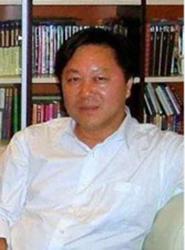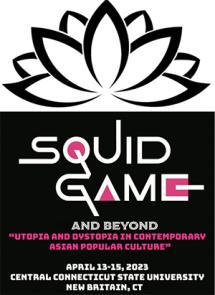
Keynote Speakers
Dr. Dal Yon Jin
"Squid Game" and the Transnational Convergence of East Asian Pop Culture

Distinguished SFU Professor
Director, The Transnational Culture and Digital Technology Lab
Simon Fraser University
Associate Editor, Journal of Communication
Dal Yong Jin is a media studies scholar. He is Distinguished SFU Professor in the School of Communication at Simon Fraser University in Vancouver, Canada where his research explores digital platforms, digital games, media history, political economy of communication, globalization and trans-nationalization, the Korean Wave, and science journalism. He has published more than 30 books and penned more than 200 journal articles, book chapters, and book reviews.
Dr. Lisa Dombrowski
Creating (and Rejecting) Increased Cultural Proximity: Miramax, Hong Kong Action Films, and a Telling Rebellion

Professor of East Asian Studies and Film Studies
Wesleyan University
Lisa Dombrowski’s research concerns the art and business of filmmaking, with an emphasis on the history of film form, modes of production, and industrial practices. Her work focuses especially on postwar and contemporary American independent cinema and East Asian cinema. She is the author of "The Films of Samuel Fuller: If You Die, I’ll Kill You!" (2008), the editor of "Kazan Revisited" (2011), and the co-editor with Justin Wyatt of "ReFocus: The Later Works and Legacy of Robert Altman" (2022). She has contributed book chapters to "Classical Studies in the 21st Century (2020); United Artists: Hollywood Centenary" (2020); "Independent Female Filmmakers: A Chronicle Through Interviews, Profiles, and Manifestos" (2018); "Silent Features: The Development of Silent Feature Films," 1914-1934 (2018); "Behind the Silver Screen: Cinematography" (2014); and "Widescreen Worldwide" (2010). Her articles have also appeared in Film History, Film Quarterly, Film Comment, The New York Times, and the Criterion Collection, among others. She is currently learning Cantonese and developing a digital humanities project on Chinese-language movie theaters and moviegoing in North America.
Abstract
Prior to 1996, no commercial Chinese-language film had scored a breakout hit in North America since the end of the 1970s kung fu craze.With the fan base for Hong Kong action films steadily growing through video and specialized exhibition since the 1980s, Miramax chieftain Harvey Weinstein seized the opportunity to market more commercial Chinese-language films to a wider audience in the mid-1990s. This talk explores the acquisition and distribution strategies utilized by Miramax to “revise” and market popular Hong Kong action films in North America. While Miramax’s strategies succeeded in introducing millions of new viewers to the stars and excitement of Hong Kong cinema, they also sparked opposition by many of the North American fans who supported the original films — as well as the Hong Kong filmmakers who made them. Miramax’s distribution model illustrates how globalization has complicated the age-old balancing act faced by popular culture purveyors who seek to expand their audience by providing a product that is familiar yet distinct. The full effects of this negotiation are best understood as mixed, uneven, and fluid, shaped by an ongoing dialogue between creators, distributors, and audiences regarding the value and significance of cultural and aesthetic difference.
Chancellor Terrence Cheng

President of the Connecticut State Colleges and Universities (CSCU) System
Terrence Cheng is president of the Connecticut State Colleges and Universities (CSCU) system, which oversees 12 community colleges, four state universities and Charter Oak State College, and serves more than 72,000 students. The Board of Regents unanimously appointed President Cheng on May 7, 2021, and he began his presidency on July 2, 2021. He served as campus director of the University of Connecticut Stamford campus from 2016 to 2021, where he also served as a faculty member in the English department.
Dr. Cheng is a first-generation student, earned a bachelor’s degree in English from Binghamton University and an MFA in fiction from the University of Miami, where he was a James Michener Fellow. He is the author of two novels: "Sons of Heaven" (2002), and "Deep in the Mountains" (2007), as well as numerous published short stories and essays. In 2005, he received a Literature Fellowship from the National Endowment for the Arts.
Dr. Quan T. Tran
Downsizing the Menu: Food, Race, Class, and Gender in Utopic, Heterotopic, and Dystopic Worlds

Senior Lecturer, Acting DUS, and Senior Program Coordinator in the Ethnicity, Race, and Migration program at Yale Univeristy
Dr. Quan T. Tran is Senior Lecturer, Acting DUS, and Senior Program Coordinator in the Ethnicity, Race, and Migration program at Yale Univeristy. She holds a PhD in American Studies. Her research and teaching interests include critical refugee studies; memory studies; Asian diaspora studies; comparative ethnic studies; and food studies. Her scholarly publications appear in the Journal of Vietnamese Studies; Amerasia Journal; the Journal of Southeast Asian American Education & Advancement; and in edited volumes including: Toward a Framework for Vietnamese American Studies; Refugee Crises, 1945-2000: Political and Societal Responses in International Comparison; Looking Back on the Vietnam War: Twenty-first Century Perspectives; and Asian America: A Primary Source Reader. Her book manuscript, Anchoring Vietnamese Boat People’s History and Memory, examines refugee identity, community, and cultural formations in the Vietnamese diaspora by tracing the late twentieth century Vietnamese boat refugee exodus and contemporary efforts in commemorating that mass migration in Southeast Asia, Western Europe, Australia, North America and cyberspace. Dr. Tran is also a published poet and translator. Her poetry and translations appear in Troubling Borders: An Anthology of Art and Literature by Southeast Asian Women in the Diaspora; Thế Kỷ 21; and www.damau.org. Her chapbook, Impermanence, was self-published in 2020.
Guest Speakers
Dr. Yanan Ju

Scholar
Department of Communication, Central Connecticut State University
Dr. Yanan Ju has retired from Central in the Fall 2022. He will read from his autobiographical novel, "Land of Bailan," and be available for a question-and-answer session on Thursday, April 13, at 4 p.m., in the Bellin Gallery.
Yanan Ju is a professor of Communication at Central Connecticut State University. He has authored/co-authored a dozen books and numerous articles. Among them are "The Great Wall in Ruins: Communication and Cultural Change in China," published by SUNY Press. Dr. Yanan Ju has passed away in Fall of 2023.




